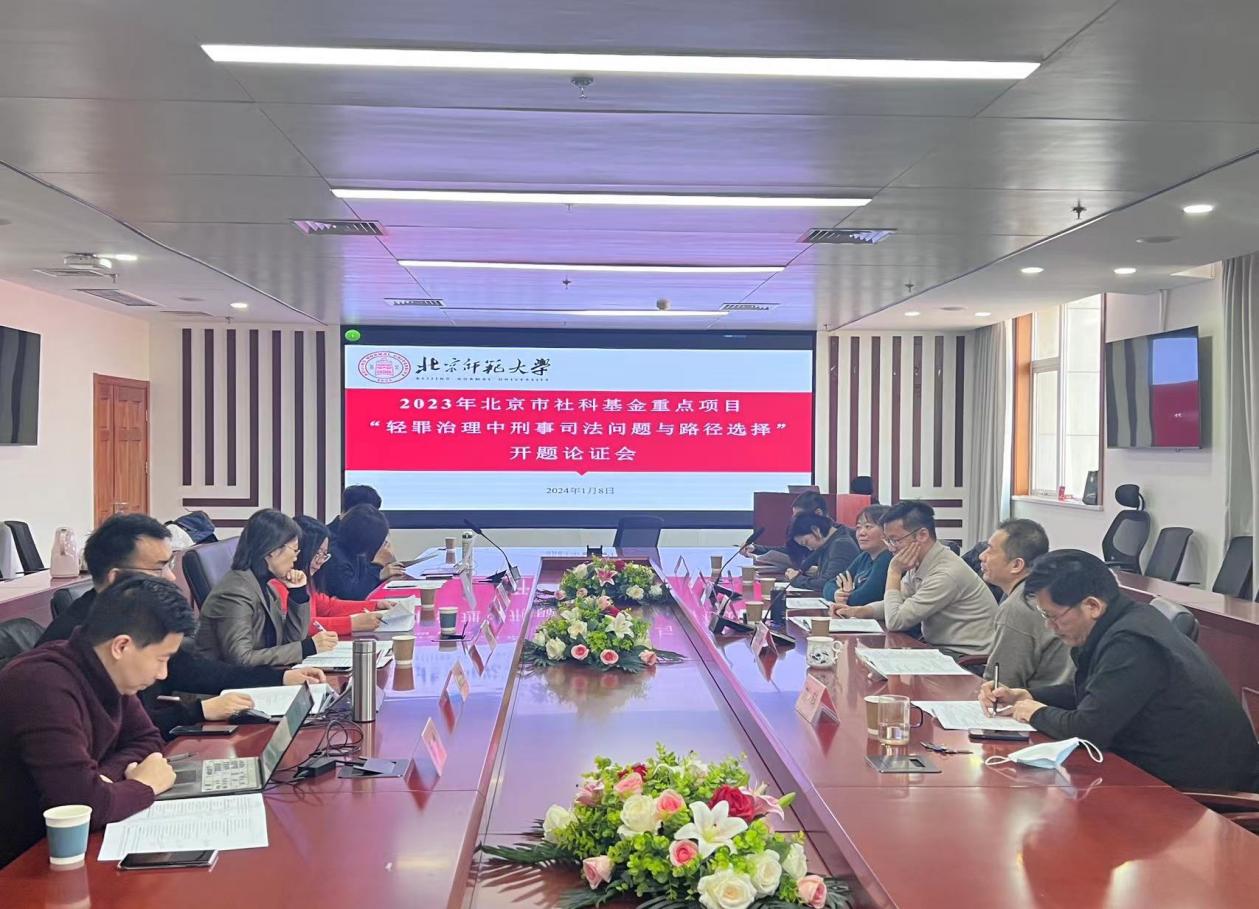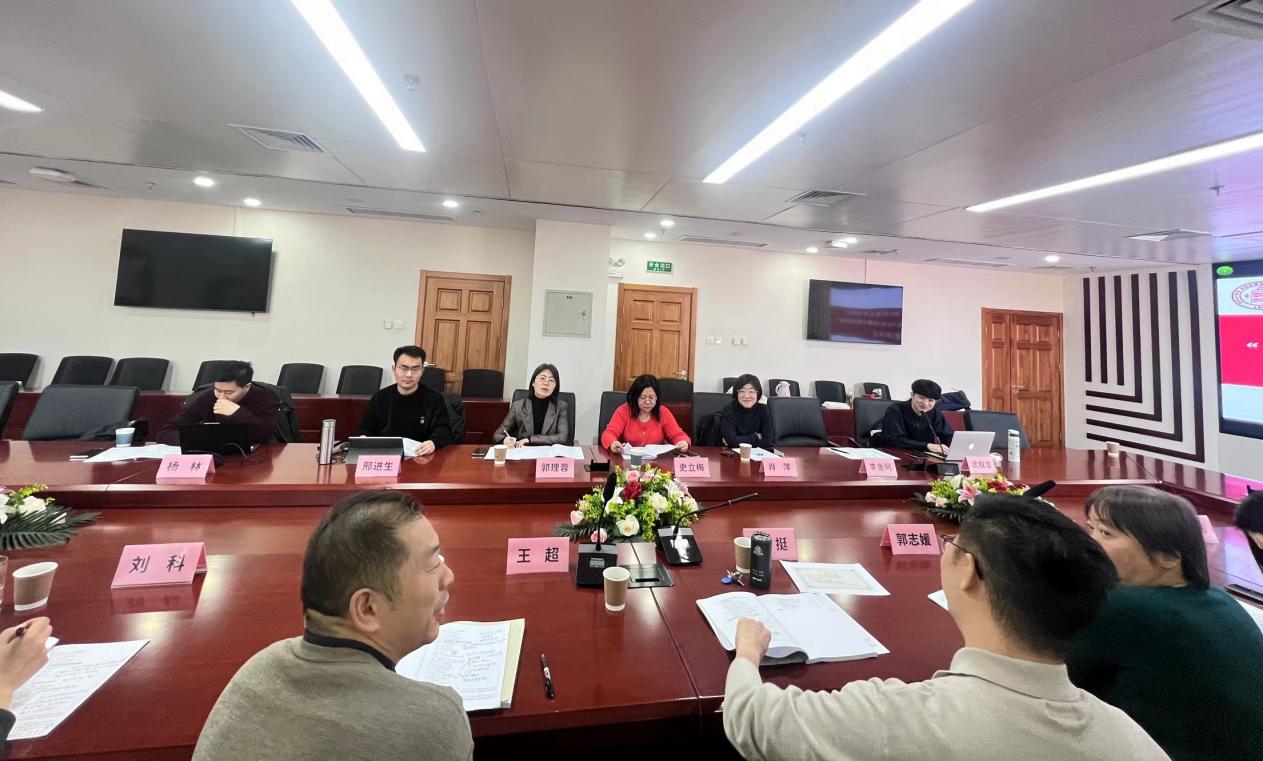
On the morning of January 8, 2024, the opening seminar of the key project "Criminal Justice Issues and Path Selection in the Governance of Minor Crimes" of Beijing Social Science Fund was held in Gao Mingxuan Lecture Hall, Room 1822, Rear Main Building. Professor Guo Zhiyuan, Vice Dean of the School of Criminal Justice of China University of Political Science and Law, Professor Wei Xiaona, School of Law of Renmin University of China, Professor He Ting, Professor Wang Chao, Professor Yuan Bin, Professor Liu Ke, Vice Dean of the Law School of Beijing Normal University, attended the seminar. Other attendees included the project leader Professor Shi Limei and the members of the project: Associate Professor Guo Lirong, Associate Professor Xiao Ping, postdoctoral candidate Xing Jinsheng, postdoctoral candidate Yang Lin, doctoral candidate Li Jinke, and postgraduate student Wu Xuyan attended the seminar. Professor He Ting, Vice Dean of the Law School of Beijing Normal University, presided over the seminar.

At the outset of the seminar, Professor He Ting, the Vice Dean of the Law School at Beijing Normal University, extended a warm welcome to the assembled experts and congratulated the research team on the successful submission of their project proposal. Following this, the research team presented a concise overview of the introductory report's contents. The study is grounded in the contemporary criminal landscape of China, where the scope of criminal legislation is expanding and the incidence of misdemeanor charges has seen a marked rise. This has precipitated a shift in the criminal law framework from the previous "severe yet not strict" approach to a "strict yet not lenient" model. This legislative evolution necessitates a corresponding transformation in the governance of criminal justice, with the management of misdemeanors emerging as a research area of paramount importance. The study adheres to the concept of criminal law integration, seeking to harmonize substantive law, procedural law, and criminal policy in the regulation of minor offenses. The research is primarily concerned with examining legislative perspectives, defining the concept of misdemeanors, exploring the mechanisms of criminal commission, refining misdemeanor litigation procedures, and regulating the collateral consequences of criminal acts. The research team aspires to devise a transformative plan and a sustainable framework for China's approach to criminal justice in the realm of minor crimes, focusing on theoretical contributions and institutional innovation. The aim is to enhance China's comprehensive system for addressing minor crimes, effectively bolstering capabilities in crime and social governance, and ultimately fostering social harmony and stability.
The expert panel enthusiastically endorsed the theoretical and practical significance, the substance of the research, its unique features, and the anticipated outcomes of the study. They offered constructive input regarding the focal points of the research, the challenges it faces, and the potential avenues for breakthroughs. The members of the expert group were unanimous in their belief that the topic is in close alignment with the cutting-edge theories and practical investigations both domestically and internationally, boasting a well-structured and comprehensive research framework, as well as a rich array of research methodologies. They expressed their hope that the team would make significant contributions to the domain of criminal law integration research. Following this, members of the research group engaged in a thorough discussion, deliberating on the expert opinions and recommendations provided.

In conclusion, Professor Shi Limei conveyed that the research team would diligently heed the precious insights offered by the experts and extended her heartfelt gratitude for the input. She assured that in the subsequent stages of the project, the team would thoroughly digest and integrate the opinions and recommendations from all the experts to further enhance and refine the research content of the project.
